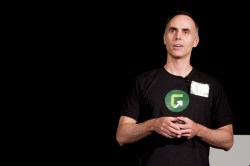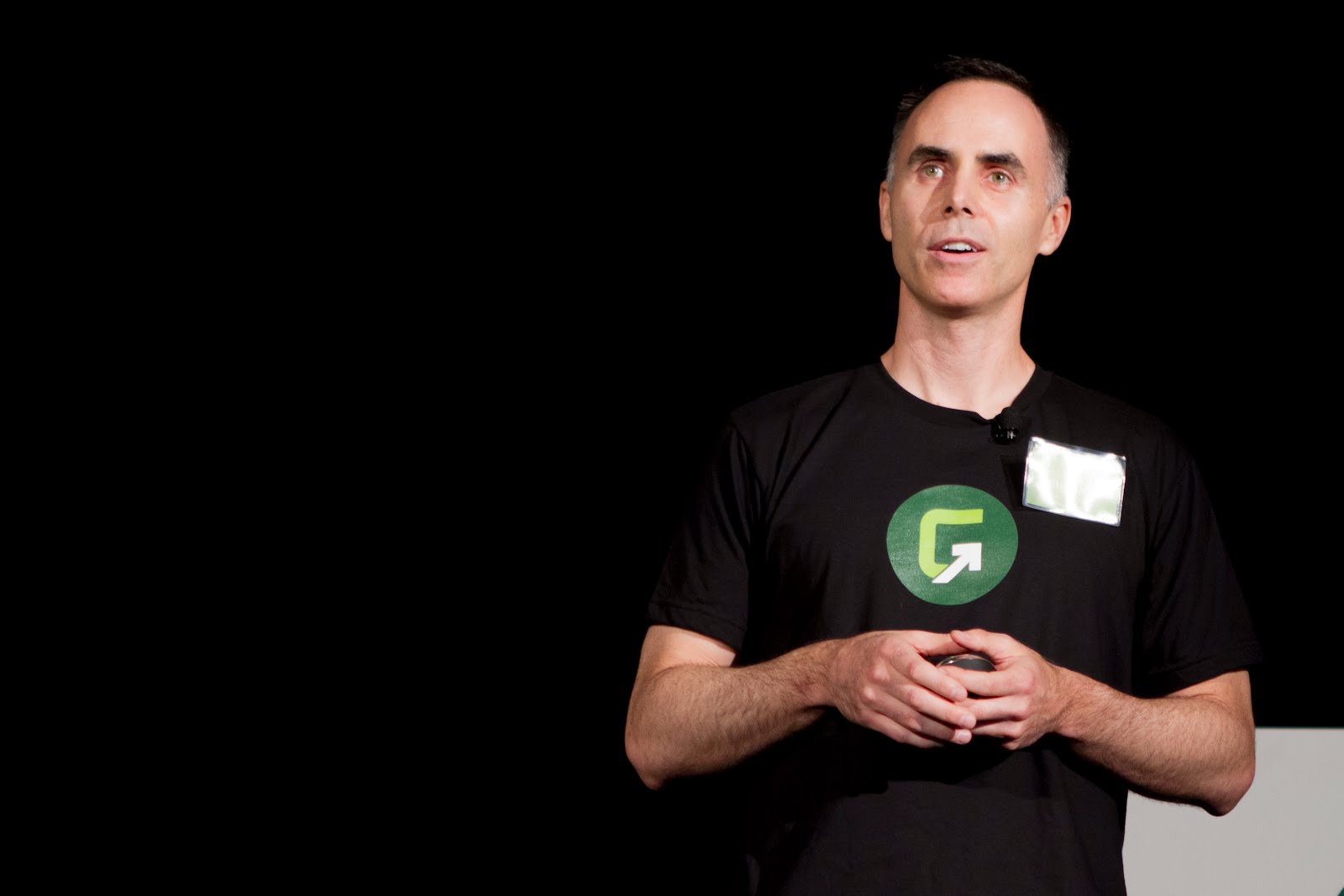
With just a couple of finger taps on my smartphone, I can purchase a beer via QR code or tell the people in city hall about a downed power line on my street. It’s better living through gadgetry — and now, a San Francisco-based business accelerator wants to put the same principles to work saving the planet.
Accelerators, common in Silicon Valley since the opening of Y Combinator in 2005, work like this: They lasso up a bunch of entrepreneurs, hand them thousands of bucks in seed funding, and ask them to grow or build companies in three months (hence the “accelerate” reference). Greenstart, founded in fall 2011, is the first accelerator program in the country that pumps dollars into cleantech — that is, technology that expands the use of clean energy.
Its founder is 40-year-old Mitch Lowe, a guy who, at 23, bailed on a “very boring finance job” he’d landed right out of college and founded his own marketing services agency — a proposition that turned out to be “a sort of a long failure,” he says. By 28, having watched another startup founder and sink, Lowe resolved to either get a real job or figure out how to actually launch a successful business. The result was Jumpstart Automotive Media, which handled ad sales for sites like Vehix.com and CarandDriver.com. After selling Jumpstart in 2007, he decided to bring the lessons he’d learned the hard way to companies that are committed to doing good.
“I have a passion for the environment and recognize that that is a big problem we have to face,” Lowe says. “But with a big problem comes a big opportunity.”
Enter Greenstart. Lowe says that large companies and the U.S. government are investing in big solar and wind energy endeavors — the major cleantech “hardware.” That leaves the “software problem” — figuring out how to trap, store, and shuffle energy — for smaller, entrepreneurial projects. It’s the “next chapter” of clean technology, he says, when the cost of solar and wind energy will steadily decline, and the importance shifts to what he calls the “networking of energy.”
It’s the smaller startups that Greenstart hands $15,000, along with $100,000 in a convertible note. A few examples:
- GELI, which has already been through the accelerator, has created software that helps with “distributed energy” systems, where electricity is generated with solar panels, etc., on rooftops and in backyards, rather than just at a handful of massive power plants — and where the battery in your electric car, for example, can be used to store energy when it’s not needed for use during time when electricity is in high demand.
- Smart Grid Billing is a company that tracks when electricity demand is highest (and therefore is most expensive) and dials back your home appliances automatically, saving you money on your electric bill and reducing the need for more power plants. It does this according to “consumer-specified criteria,” of course — so your TV won’t cut off in the middle of the Super Bowl.
Not all the companies Greenstart works with are wonky software applications — nor are they all related to the electrical grid. Scoot Networks is like Zipcar for electric scooters. RidePal is a commuter bus service that takes workers to and from offices in the suburbs — a school bus for grown-ups, only with WiFi and espresso machines. Spinlister facilitates peer-to-peer bike sharing.
Lowe looks for three things in a company before he writes a check: the team behind the company (including influential board members), signs of movement or progress, and whether there are customers willing to pay for what these startups are offering. After three months, startup founders show off during Greenstart’s Demo Day, when they present their products, and what those products do, on stage in front of cash-laden venture capitalists.
Humble beginnings, perhaps, but if Greenstart can lure young entrepreneurs away from making more photo-sharing apps, maybe the next Zuckerberg will figure out how to build cities that digest all their waste or feed people via gigantic vertical farms.
“You begin to show a spotlight on entrepreneurs that are doing really innovative things and … starting companies that reduce energy,” Lowe says.
Of course, Lowe’s no innocent optimist. He knows some of the startups that come out of his accelerator will fail, as many other startups do. The point, however, is to celebrate the “success stories” and “educate and inspire investors that [cleantech] is going to be a big category.”
Maybe that’s cause for excitement enough. In the meantime, I’ve got this great photo I want to share.



